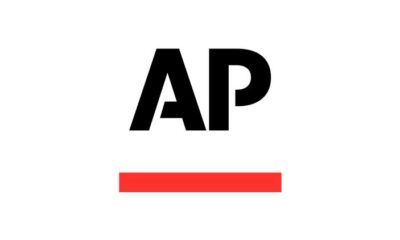Health
Prostate Cancer Awareness: Key Insights from RWJBarnabas Health

Prostate cancer awareness and screening are essential topics for men’s health, especially as the disease ranks among the most common cancers globally. Dr. David M. Golombos, a urologic oncologist with the Urologic Oncology Program at RWJBarnabas Health and the Rutgers Cancer Institute, emphasizes the importance of understanding risk factors and screening protocols.
Understanding the disease begins with recognizing its prevalence. Prostate cancer affects approximately 1 in 8 men in the United States, with some regions reporting even higher rates. This statistic highlights the necessity of proactive health measures. According to Dr. Golombos, early detection significantly improves outcomes, making regular screening crucial for men, particularly those over the age of 50 or with a family history of the disease.
Key Facts About Prostate Cancer Screening
Dr. Golombos points out that prostate-specific antigen (PSA) testing is a vital tool in early detection. The PSA test measures the level of a specific protein produced by the prostate gland. Elevated levels can indicate prostate cancer, although they can also result from benign conditions. Therefore, it is essential that men consult healthcare professionals to interpret these results accurately.
The recommendation for screening varies based on individual risk factors. For instance, African American men and those with a family history of prostate cancer should begin screening earlier, often around the age of 40. Meanwhile, average-risk men are encouraged to start discussions with their healthcare providers by age 50. Dr. Golombos advises that these conversations should address personal health histories and any concerns regarding prostate health.
Another critical aspect of prostate cancer awareness is understanding the importance of lifestyle factors. Diet, exercise, and regular check-ups play significant roles in overall health and can influence cancer risk. Dr. Golombos suggests that adopting a balanced diet rich in fruits, vegetables, and healthy fats can contribute positively to prostate health.
Continuing Education and Support
RWJBarnabas Health and the Rutgers Cancer Institute are committed to enhancing public awareness about prostate cancer. They provide resources and educational programs designed to inform men about the disease’s impact and the importance of early detection. These initiatives include community outreach, informational sessions, and support groups for patients and families.
As part of their commitment, the institutions are actively involved in research to improve screening methods and treatment options. Ongoing studies at the Rutgers Cancer Institute aim to provide more tailored approaches to prostate cancer management, ensuring that patients receive the best possible care based on their individual circumstances.
In conclusion, understanding prostate cancer and the importance of screening is vital for men’s health. With the insights from Dr. Golombos and the resources available through RWJBarnabas Health and the Rutgers Cancer Institute, men are better equipped to take charge of their health. Regular discussions with healthcare providers, combined with informed lifestyle choices, can lead to early detection and more effective management of prostate cancer.
-

 Technology5 months ago
Technology5 months agoDiscover the Top 10 Calorie Counting Apps of 2025
-

 Health3 months ago
Health3 months agoBella Hadid Shares Health Update After Treatment for Lyme Disease
-

 Health3 months ago
Health3 months agoErin Bates Shares Recovery Update Following Sepsis Complications
-

 Technology4 months ago
Technology4 months agoDiscover How to Reverse Image Search Using ChatGPT Effortlessly
-

 Technology1 month ago
Technology1 month agoDiscover 2025’s Top GPUs for Exceptional 4K Gaming Performance
-

 Technology3 months ago
Technology3 months agoElectric Moto Influencer Surronster Arrested in Tijuana
-

 Technology5 months ago
Technology5 months agoMeta Initiates $60B AI Data Center Expansion, Starting in Ohio
-

 Technology5 months ago
Technology5 months agoRecovering a Suspended TikTok Account: A Step-by-Step Guide
-

 Health4 months ago
Health4 months agoTested: Rab Firewall Mountain Jacket Survives Harsh Conditions
-

 Lifestyle5 months ago
Lifestyle5 months agoBelton Family Reunites After Daughter Survives Hill Country Floods
-

 Health3 months ago
Health3 months agoAnalysts Project Stronger Growth for Apple’s iPhone 17 Lineup
-

 Technology4 months ago
Technology4 months agoHarmonic Launches AI Chatbot App to Transform Mathematical Reasoning





















